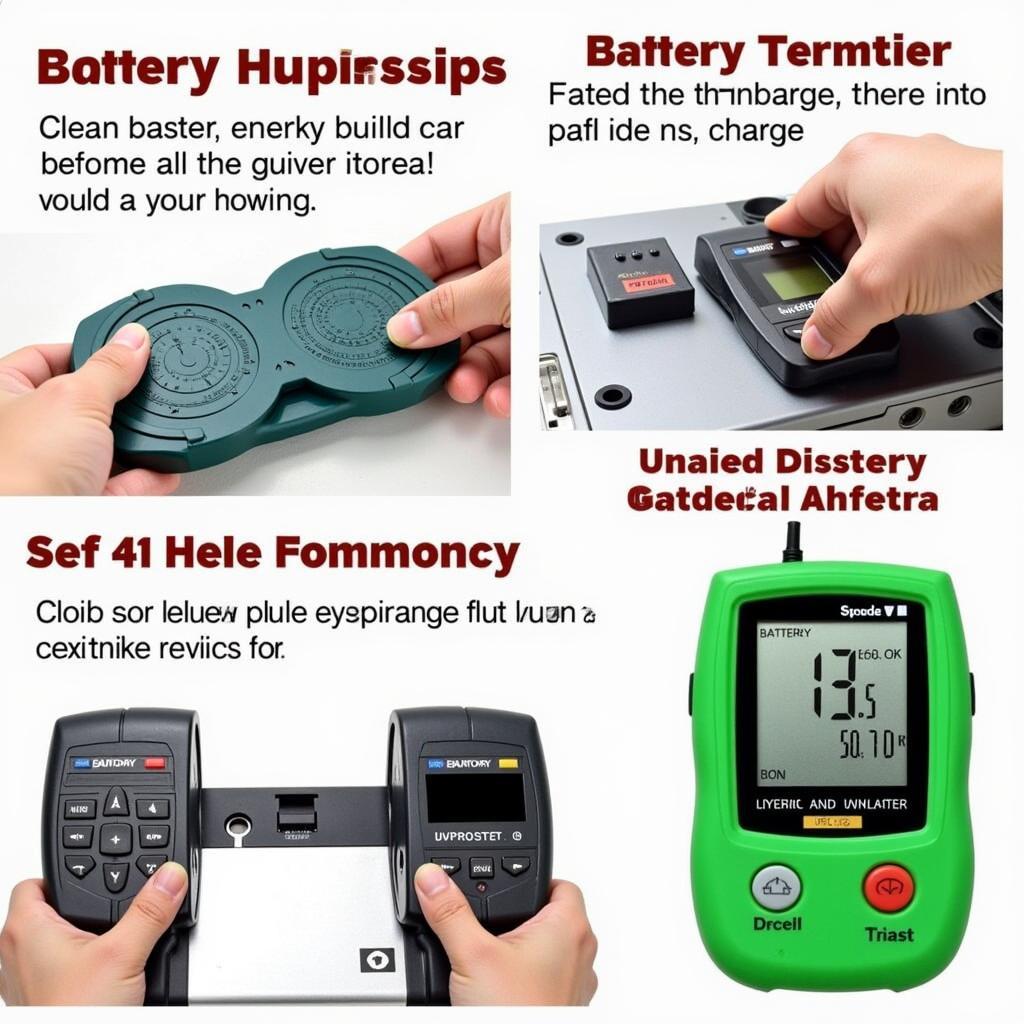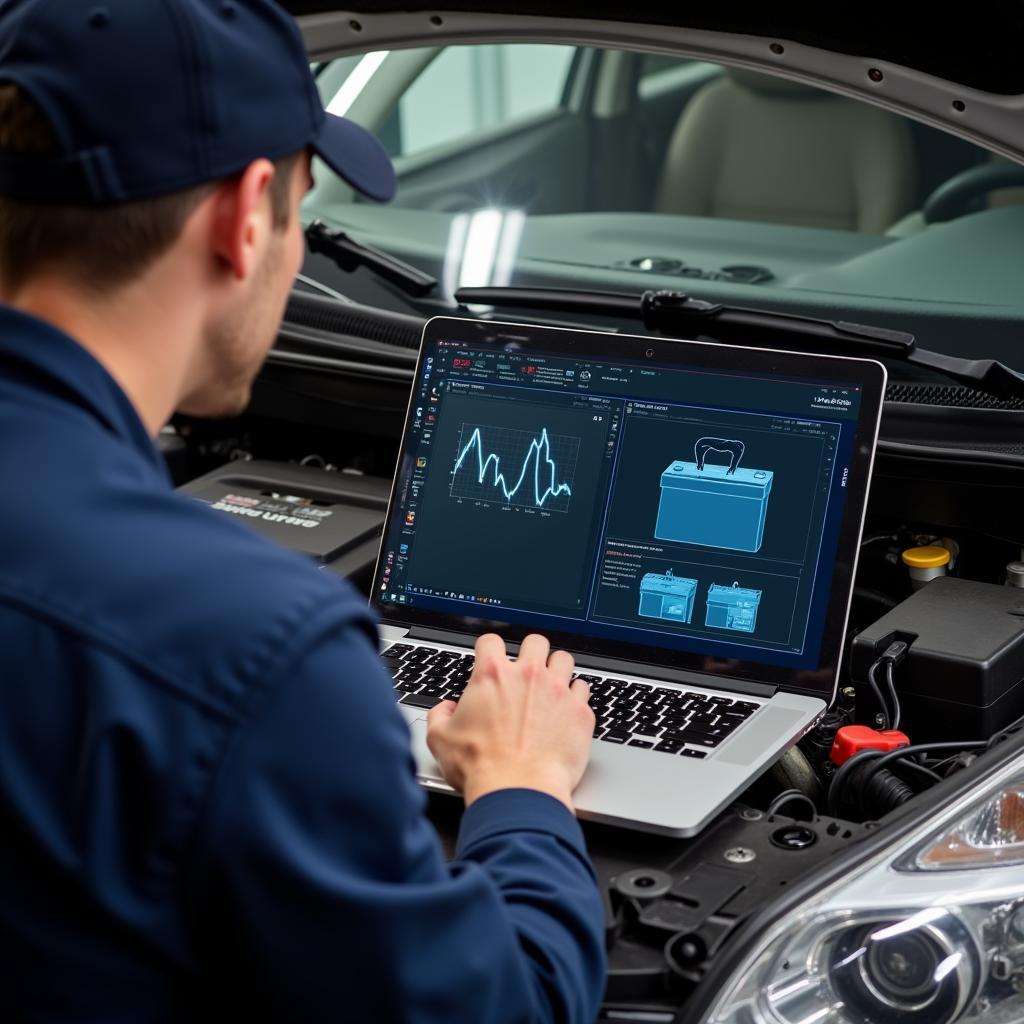Truck batteries often struggle in cold weather, leaving you stranded at the worst possible time. Understanding why this happens and knowing how to prevent it can save you time, money, and a lot of frustration. This article explores the reasons behind cold-weather battery failure and provides practical solutions for troubleshooting and preventing this common issue.
Why Does My Truck Battery Die in Cold Weather?
Cold temperatures significantly impact a battery’s performance. Chemical reactions within the battery slow down as the temperature drops, reducing its ability to produce the necessary current to start your engine. Think of it like molasses in winter – thick and slow. The cold also thickens the engine oil, making it harder for the engine to turn over and requiring more power from the battery. This increased demand, combined with the battery’s reduced capacity, is a recipe for a dead battery.
Furthermore, if your battery is already weak or nearing the end of its lifespan, cold weather can exacerbate existing problems and accelerate its demise. A battery that might function adequately in warmer weather can quickly fail when the temperature drops below freezing. Regularly testing your battery, especially as winter approaches, is crucial for identifying potential problems before they leave you stranded.
Troubleshooting a Dead Truck Battery in Cold Weather
If you find yourself with a dead battery in the cold, there are several steps you can take. First, check the battery connections for corrosion. Clean any corrosion with a wire brush and baking soda solution. If the connections are clean and tight, you can try jump-starting your truck using jumper cables and another vehicle or a portable jump starter. Remember to follow the correct procedure for jump-starting to avoid damaging your vehicle’s electrical system.
If jump-starting fails, it’s likely the battery needs replacing. Always choose a battery specifically designed for cold weather and ensure it has the correct Cold Cranking Amps (CCA) rating for your truck. A higher CCA rating indicates a better ability to start the engine in cold temperatures.
Preventing Cold Weather Battery Failure
Preventing battery problems in cold weather is often easier than dealing with a dead battery. A few simple preventative measures can make a big difference. Firstly, ensure your battery is in good condition and fully charged. Have it tested regularly, especially before winter sets in. Consider using a battery tender or trickle charger to maintain a full charge, particularly if your truck sits idle for extended periods. This is especially important in extreme cold.
 Battery Maintenance Tips for Cold Weather
Battery Maintenance Tips for Cold Weather
Secondly, park your truck in a garage or carport if possible. Even a small amount of protection from the elements can help mitigate the effects of cold on your battery. If garage storage isn’t an option, consider using a battery blanket, which is an insulated cover designed to keep the battery warm. This can significantly improve its performance in freezing temperatures. Similar to is my battery dead or is it the alternator, addressing these underlying issues can prevent future problems.
Conclusion
Dealing with a dead truck battery in cold weather is a frustrating experience. By understanding why cold affects batteries and taking proactive steps to maintain and protect them, you can significantly reduce the risk of being stranded. Regular testing, proper charging, and protecting your battery from the elements are key to ensuring reliable starts throughout the winter months.
FAQ
-
What is the ideal CCA rating for a truck battery in cold climates? The ideal CCA rating depends on your specific truck model. Consult your owner’s manual or a qualified mechanic to determine the appropriate rating.
-
How often should I test my truck battery? It’s recommended to test your battery at least twice a year, preferably in the spring and fall.
-
Can extreme cold damage a truck battery permanently? Yes, prolonged exposure to extreme cold can damage a battery and shorten its lifespan.
-
What are the signs of a weak truck battery? Signs of a weak battery include slow engine cranking, dim headlights, and clicking sounds when turning the key.
-
Is it safe to jump-start a truck battery in freezing temperatures? Yes, it’s safe to jump-start a frozen battery as long as you follow the correct procedure and safety precautions.
-
How long does a truck battery typically last? The average lifespan of a truck battery is 3-5 years, but this can vary depending on usage and climate.
-
What type of battery is best for cold weather? AGM (Absorbent Glass Mat) batteries are generally considered to be the best type for cold weather due to their superior cold-cranking performance and durability.



